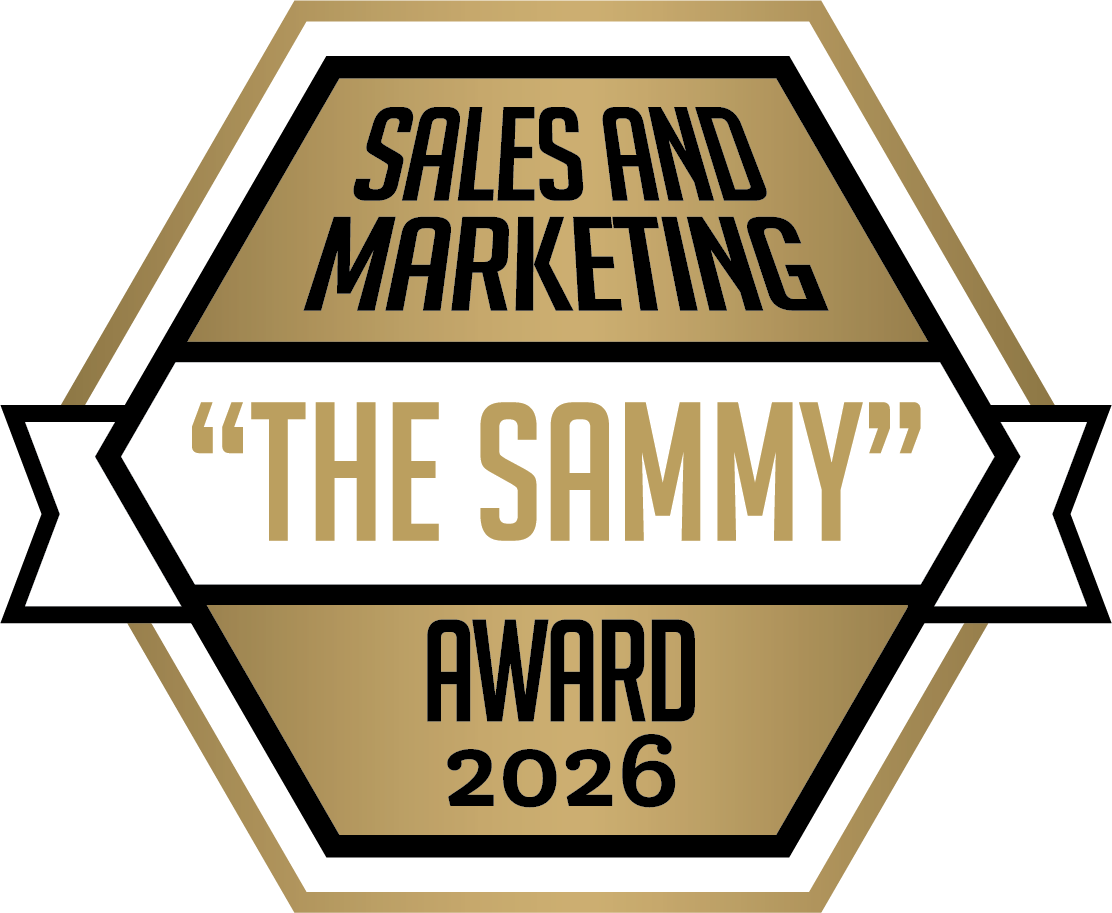
SYNC Interview with Lilach Bullock of Socialable

Lilach is a business owner, social media consultant, internet mentor and founder of Socialable.co.uk. Listed in Forbes as one of the top 20 women social media power influencers she is one of the most dynamic personalities in the social media market.
Lilach is frequently consulted by journalists from Forbes, Prima Magazine, The Sunday Times, Social Media Today and BBC Radio 5 Live. She is also a returning Big Awards Judge!
Lilach will share her thoughts on the trends and impact of social media on business and we will gain her perspective on how the role of women has evolved.
Interview Transcript
Russ: I’m excited to have Lilach Bullock from the UK. She runs Sociable, and she is bar none the social media guru to the stars, to businesses, to everybody, so Lilach, thank you for joining us today and I’m glad we finally got to chat.
Lilach: Thank you, it’s a pleasure, I’m got the hook up, but it’s great.
Russ: tell me a little bit about Sociable and what you guys are doing and what you are doing to help companies grow? What is your role in all of this social media madness?
Lilach: Sociable is a leading social media marketing agency. We work with clients all over the world and we help them raise more visibility and ultimately generate revenue for their business using a variety of different online marketing so that’s what we do in a nutshell, as well as we provide training, men touring and I [inaudible 00:01:00] and networker. That’s really in a nutshell what we do. We like to help businesses and charities as well as large corporate and entrepreneurs. A lot of problems or challenges that people have in the online world it’s noisy in there. How can you get heard above the noise and how can you get your brand out there? That’s what we do, we try and think of creative ways to get your message heard above the noise, literally.
Russ: It seems like most companies move into social media first in kind of a reactive mode because somebody said something dirty about them online or nasty, and then work their way into the proactive mode.
Lilach: We tend to get the larger companies tend to have that attitude, so if someone is talking about they not liking what they say, then they react in social media because it’s a very quick way. It’s kind of like they are putting out fires in the end. If someone says something negative about your company and then you’re constantly trying to make them feel happy again It’s a practice that we actually don’t advocate they do, so that engaging is not just about listening and bonding, it’s about generating conversations and obviously getting people talking about your brand the right way. It’s a fantastic way to use customer service and it’s great a company, particularly the larger brands are actually listening to people and engaging with them via social media.
It’s interesting how all companies work as well because a lot of them can be quite skeptical and they think everyone’s using social media, I should be using it. But then they just don’t know how to use it effectively for their business.
Russ: You recommend that more proactive approach of getting in and owning those conversations ahead of meeting and the reactive?
Lilach: Absolutely. For me, social media is all about engaging and building relationships, and it’s very content driven as well. It can be used to generate more revenue but it’s [inaudible 00:03:14] I think about many companies get it wrong they are simply broadcasting and effectively spamming. Sales messages, it’s so much more than that. It’s about providing valuable content where you can showcase your expertise, it’s gaining trust, it’s anything within the niche that you are in.
Russ: How do you think the difference is between business-to-business companies and business to consumer. Is there a difference in the social media approach if you are B2B or B2C?
Lilach: I don’t think there’s a big difference in the approach. I think it’s more about the brand and how much money they spend. I see a lot of larger companies throwing money at it without actually spending time to engage and provide content and value. Smaller businesses, they don’t have thousands of dollars to spend on ads. They actually have to be much more creative to actually reach their audience in a different way. I think [inaudible 00:04:21] is the same and it can give you loads of fantastic case studies of really, really good other brands who you can effectively get really good results and the opposite. I don’t think it serves their purpose, it’s more about the actual company and not my [inaudible 00:04:40]. That’s my personal opinion.
Russ: So if you had to give companies that have a small or nonexistent footprint in the social media atmosphere, what would be your tip to getting started in that media? How do you even figure out where to start? What’s the right way to go about it?
Lilach: There are two parts to it. First of all, social media is very time-consuming and it can be quite overwhelming once you start. I think it’s about appreciating the time is money after all, and where is your audience? Where are they and how can you reach them and what do they react well to and how responsive are they? For example, if your audience is using Facebook or Pinterest, you know you need to focus your time and energy on finding and connecting and engaging with them. Rather than having a I want to be everywhere approach, try to be as targeted as possible and think about where your actual audience is, where are the people listening to you and who you need to connect with.
Once you found them and know where they are and know the type of style that they like and how well they respond I think more than providing content, sharing your value and helping people is the best and the quickest to market and to social media. It’s really not rocket science, it’s how we like to be treated in the off-line world.
I laugh, I don’t know if you do much networking years ago but I was a prolific networker and I attended so many networking events and everything was going to an event probably is getting some business cards and saying hey, look at me, I’m fantastic, I do this. Now, you know you wouldn’t do that, now it’s in the online world. It’s about using a little bit of common sense as well and thinking about how you yourself might be treated and what makes you think oh wow, that’s really helpful, that’s really interesting. You know, social media is very much about sharing and that’s why content is very critical and having an effective social media plan.
When you’re sharing content think about what makes you think wow, that’s terrible. We always talk about going off on a tangent here, but we always talk about getting things by, everyone wants to have the viral effect. Things don’t happen overnight, it’s about planning. People don’t appreciate to get 1 million likes. There is so much planning involved that they can’t just create a video and turn it on and that was it. They built it up, they built their network, they built [inaudible 00:07:30] and then they switched on the viral effect. I think it’s about having a managed and realistic expectation as well.
Russ: You just mentioned two or three or four social networks and finding your audience. How would you recommend that somebody even though try to figure out where their audience is? Most people are familiar with Facebook, Twitter, we now have this great Google plus thing. And then you also mentioned a couple, some may have not heard of like Pinterest. How do you go about evaluating those?
Lilach: I think it’s about understanding your customer is. The more you know about your customer by where they’re located, what they like to do where they like to shop, the more information you know about your customer the easier it is for you to connect with them. Also to provide what they want and what they need. I think it’s something that every business needs to be doing regardless of whether they’re using social media or not because it’s the best way to understand what you’re customer wants. I write not for me, I write for my audience because I constantly have to put them first and think about where are they, what do they like?
Also it’s about taking it to the next step as well and thinking they may be on Facebook but Facebook is so crowded, so busy that I am just not going to be able to have a big enough impact. I want to think of other ways I can find them and using the smaller niche side like Stumble Upon and Tumbler, Google plus for example, although it doesn’t seem very popular and it’s really rising up through the ranks it’s still not satisfactory or noisier than Facebook, and I’m actually seeing much more engagement on Google plus been on Facebook for that very reason.
Even I’m spending more time on Facebook than Google plus. It’s about having a plan as well and working out how much time you have to spend and constantly testing to see what gives you the best results. Everyone wants different things, you know not everybody wants to, I know it sounds strange but everybody wants to make money from social media. For some people it’s a way to listen and to get market research. It’s a way to get introductions, connections, it’s a way to build trust, credibility, drive traffic, build options on the net.
There are so many things you have to think about, what you want to achieve, what are your goals. It all goes about the whole planning [inaudible 00:10:11].
Russ: I know you are a prolific writer and on your website, sociable.co.uk there’s a lot of material there, including a lot of resources and books. What would you recommend to somebody in that early stage social media planning? They go to your website and download?
Lilach: We have a free resources section where you can download a free e-book on five crazy ways, I’ve got it, the title of my book, Five Crazy Ways to Get Traffic to Your Website Now. We also have a checklist for the main social networks like Pinterest, Google plus, Facebook, LinkedIn, etc. wheregoing under checklist and it can help you get up and question what you need to do and at the end of the checklist there’s a list of lots of different tools and resources to help you get the most out of each of those networks. I recommend you do that. I recommend you spend some time looking at my site and if you are really serious about it we can connect that thought and once again call us and feel free to get in touch and we can discuss further how we can help you.
Russ: One of the biggest factors of people not getting into social media is being afraid of making a mistake. What are some of the big mistakes that you’ve seen that brands make but also some mistakes that executives make. We see the Justin Biebers and the others make mistakes all the time, but what are the common business mistakes that you see being made out there?
Lilach: Oh gosh, there are so many, where to start. Just the spamming side for me is a big turnoff. People who just don’t do a message without even knowing you. All they are trying to do is to sell instead of actually build a relationship and get to know you, so I hate that whole thing, but I’ve always hated that. I think for me, social media is about engaging and sharing content. If you get those two things right then you have a successful campaign.
Russ: Good, so all of you listening out there, don’t spam, it’s a nasty habit and don’t engage with people you don’t know. Get to know them personally.
Lilach: Yes.
Russ: That’s great. So now when you are not on Twitter and LinkedIn and Facebooking and tweeting and whatever else, pinning, what are you doing in your off time?
Lilach: Off time, what’s that? I have a beautiful young daughter and she’s going to be nine soon. I got her school report yesterday and she did well, I’m so proud of her. She’s a little entrepreneur in the making, actually. It’s wonderful. I’ve been home with my family [inaudible 00:13:12]. I have an and easiness about traveling and I’m very fortunate because I was speaker so I get speaking travel all over the world. I recently won a car as a gift [inaudible 00:13:25] so that was pretty cool. I’m a workaholic and because I’m a working mom, I don’t get much [inaudible 00:13:34]. I love what I do and I’m very privileged to be able to do what I do and connect with so many awesome people all over the world. It’s all good.
Russ: They say the Ferraris are redder in Monaco, is that true?
Lilach: Oh my God, they are green, they are green. I think green is the new color, I tell you I saw more green, luminescent green than anything else. Lots of red. I think I may have saw white, maybe black it’s crazy. You don’t see them, you hear them.
Russ: If I remember correctly I think Harley Davidson was the first motorsports company to actually patent a sound. They patented the grumble out of their motorcycles. I’m pretty sure Ferrari is probably right behind them with their growling.
Lilach: I wouldn’t be surprised.
Russ: That’s the true social media, someone following your growl. I appreciate your time. I would encourage everybody to go to sociable.co.uk, follow Lilach on everything you can. She provides great advice for entrepreneurs. I know her advice and her tweets and her content was critical to the big award getting started in Business Intelligence Group. I’ve been following her for years, her advice really is spot on. You will get a lot of insight following her and connecting with her, so I encourage everybody to do that right now, you can find her and engage with her.
Lilach, we really appreciate all your time and energy going into this and helping companies and we look forward to the 2013 judging.
Lilach: I’m really excited, I can’t wait to see what the new business is. It will be very cool.
Russ: All right everybody, go check her out, sociable.co.uk. Thanks for joining us everyone.
Lilach: Thank you.









